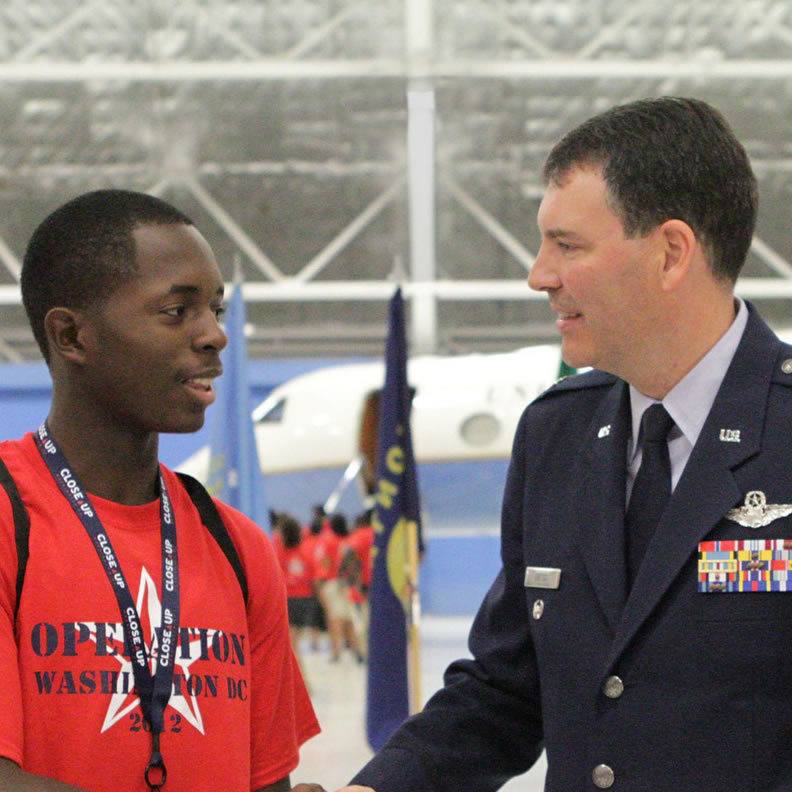

Examine the impact of America’s past conflicts and enduring questions of democracy.
Through explorations of Washington’s numerous war memorials and a visit to Embassy Row, students will learn more the role our military plays in the global community. Guided by our highly-trained instructors, students have the opportunity to:
- Be inspired by the famous monuments, world-renowned museums, and hallowed institutions that define our history;
- Meet with their Congressional delegation on Capitol Hill;
- Explore Capitol Hill and witness a Congressional Committee Hearing in action*;
- Engage in meaningful discussions with peers from around the country and debate the most pressing issues facing our nation in a Mock Congress;
- Get a glimpse of diplomacy in action by discovering an embassy and meeting an ambassador or diplomat*; and
- Participate in a special Armed Forces panel at the Women in Military Auditorium to engage with the men and women who serve our country.
*Subject to availability.







